Interview with Blue Rodeo’s Manager: Susan de Cartier
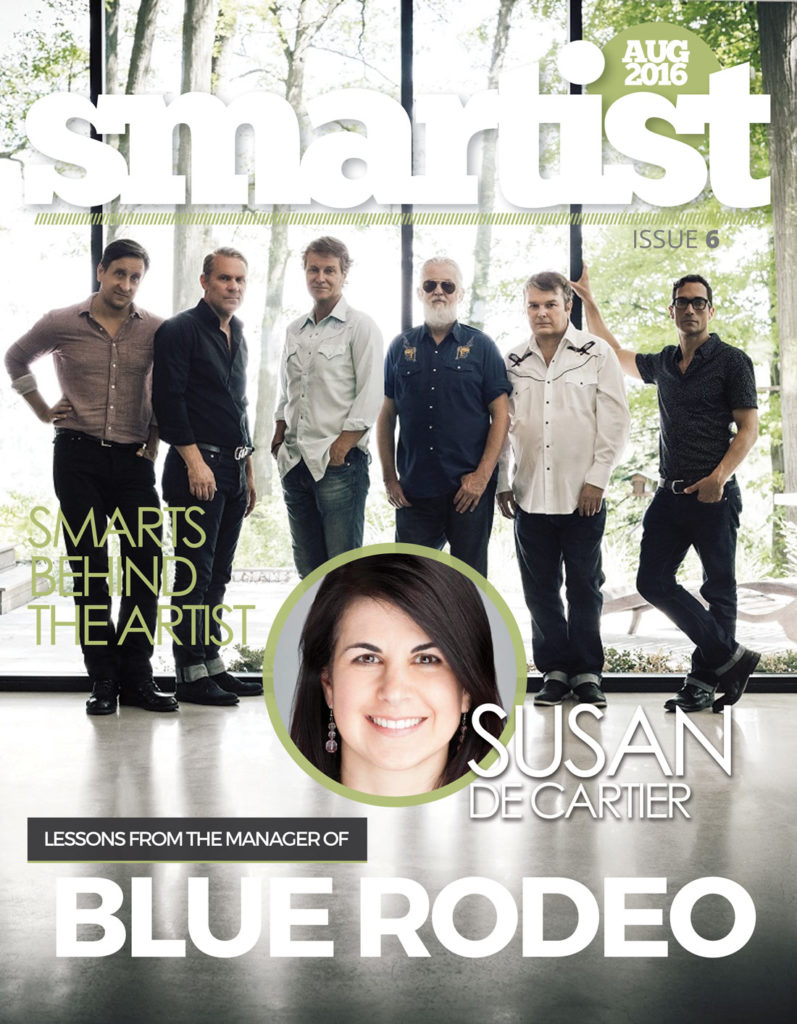
In this interview we find out:
- Susan’s inspiring story of how she met Jim Cuddy (lead singer of Blue Rodeo)
- Her fluke meeting on an airplane that led to her managing Blue Rodeo
- How she runs her artist management company
- How she balances her time between work and personal
- What has kept her management relationship with Blue Rodeo lasting over 25 years and counting
- And more!
This is a fun one.
Susan de Cartier founded Starfish Entertainment in 1990, and has been managing artists and developing talent ever since. She has been directly involved in the creation and release of more than 45 albums. Starfish clients include Blue Rodeo, The Sadies, Oh Susanna, Skydiggers and The Jim Cuddy Band. Starfish also runs and operates The Woodshed Recording Studio on The Danforth in Toronto, Ontario.
In the mid-80’s, Blue Rodeo was the hottest band on the Toronto club circuit. To date, they’ve seen over 4 million records sold, multiple JUNO Awards, world-wide tours, an induction into the Canadian Music Hall of Fame, and a Star on the Walk of Fame. Blue Rodeo has become one of Canada’s most successful bands – both critically and commercially – all the while influencing the evolving sound of Canadian music.
Okay so tell us about the fluke meeting on the airplane.
I met Blue Rodeo’s manager on an airplane. I had known Jim Cuddy when I worked at a commercial film company as a receptionist, and he was a props buyer. Blue Rodeo had just formed, so we would go see them live at clubs around the city. Fast forward a few years…. I graduated from university and had moved to New York City. One weekend I was flying to Toronto to visit my boyfriend and I bumped into Blue Rodeo’s manager – John Caton - on the airplane. Blue Rodeo had just broken huge with ‘Try’ and John was flying back and forth to New York a lot on business. I overheard John talking about Blue Rodeo, and so I said “Oh, I know Jim Cuddy”, told him my history and we got chatting. John is a charming character, one of a kind. A few months later, I bumped into him again on another flight. This time we sat next to each other and I told him I was planning a move to Toronto and asked, “if I move back to Toronto, may I contact you about a job?” He said, “Sure, here’s my card.”
I came across that card recently, it’s somewhere around here, and I thought “It’s funny because that card changed my life.” I would never have thought about going and working in music, it was not on my radar at all. I was a legal assistant in New York City and planning to explore law school. But the music business is fun and filled with smart, creative people. I would have been 23 at the time.
And you had just decided that you wanted to move to Toronto?
Yes, I was moving in with a boyfriend who lived in Toronto. You know sometimes the best opportunities happen because you’re at a cross road and you’re open to possibilities. You’re trying to figure things out. If I didn’t need a job, I wouldn’t have been open to exploring a completely different career path.
I started working at The Artist Consulting Team (The ACT) when I was 23. This would have been 1988, and it was like the Wild West back then. The major’s ruled. Nobody wanted to put out Blue Rodeo’s record in 1985 so John started a record label and artist management company. I worked on the management side.
After the success of Outskirts, Blue Rodeo was getting bigger, the company was getting bigger, we were taking on new acts and it was really busy. We assigned individual staff members who were in the management department as ‘responsible managers’ for each act. So we became the ‘day-to-day’ managers of different artists.
So I became Blue Rodeo’s day to day person, I did all of their touring, logistics, etc., while John handled career direction, label negotiations, etc. This would be 1989, 1990, and in the spring of 1990, John suddenly quit the business.
He simply walked away. Completely walked away. Announced he was leaving in a month or so and closed up shop. Blue Rodeo had just finished recording ‘Casino’ their third record, with Pete Anderson in LA, and there was all of this turmoil. I was one of the first in the office to be told along with Jim from BR. None of the other staff know yet. I went outside to get a breath a fresh air and Jim Cuddy stepped outside on the front porch with me, sat down and said “Hey do you want to start a company with us? If these guys can do it, we can figure it out.”
I said okay and just like that, I was starting a management company. We just proceeded. I took over all the business stuff, Jim was very involved because at this point the band was very cautious. I was only 25 and a total rookie. We had a full slate of dates in front of us and we just kept moving forward. I’ve never seen anybody tour like Blue Rodeo used to tour. Their work ethic is inspiring.
We created a huge interactive tour archive as part of the celebration around 2015’s Blue Rodeo Live At Massey Hall album. It was a massive project as, of course, we didn’t have any of the early years on the computer so we’ve been creating the database from old itineraries. In one year we performed over 225 shows and I just wonder how we managed it!
So I worked out of my dining room for a while – 6 months or something. And then I got an office and it grew from there.
So the fluke meeting on the airplane led to a whole life in music that I never anticipated. It’s funny, people plan their lives so carefully but it can often be defined by very specific moments that change your direction dramatically. The first experience you have, the first time you travel to a new place, the first time you meet someone and you don’t even realize at that moment they are going to become your best friend or whatever character they end up playing in your life.
When did you hire the first person to help you?
I hired the first person to help me – oh geez I mean I’d say probably it around 1992 or maybe even sooner. We were horribly, horribly behind in fan mail. We still get the odd fan letter, but people don’t write letters like that anymore, they send emails and communicate via social media. Well, social media is a lot of work. But those people don’t remember the days when you got fan letters and created newsletters that you mailed out. Design them, lay them out and print them. There was a big fan – Ruth Kearney – and she started working for me running our fan club and that just evolved into a professional relationship. She took fans very seriously and really helped to teach me not to take those folks for granted. She volunteered for a while and then I hired her on.
I didn’t really start managing outside bands until 2000. I had managed Blue Rodeo and side projects up until then and we were busy. They’re always so creative and creative people are always doing something new and interesting. They’re very interesting business partners.
But in 2000 I hired Judith Coombe and she was interested in getting into management. It was perfect because I wanted to work with additional artists and broaden our circle.
Do you help manage Jude’s acts?
All of our clients are managed by Starfish but we have different responsibilities depending on the artist.
Do you look out (for new artists)?
Yes, but I wouldn’t say that I’m soliciting material. It’s usually through someone I know, or tastemakers, or through one of my artists. Your artists are the people who know your taste the best and I trust their judgment. But it’s also busy and it’s hard to take on more projects if we don’t have time to work them properly.
How many would you say you’re managing right now and what’s comfortable for you?
We have Blue Rodeo, Jim Cuddy, Greg Keelor, Skydiggers, The Sadies, Oh Susanna and our newest signing, Harrow Fair. We also manage Belle Starr, who are fantastic but they each have successful solo and side musician careers so it is hard to get that band to commit full time to the project. We do our best to come up with strategic ways to do that and keep this project alive and creative.
How does your staff structure work?
We’re a pretty tight-knit team. Jude and I are managers so we do a bit of everything. I mean that’s what managers do. We wear all the hats. This has always been true but now people understand that.
Our third full-time staff person is Amanda Schenk who works behind the scenes making everything happen. Amanda handles all of our grant applications and fulfillment, our internal accounting, show advancing, gear and building insurance, etc. We also manage The Woodshed recording studio and Amanda is the studio manager.
I also have Danielle Emmrich who works with us part-time in Los Angeles. Danielle handles all of our licensing and publishing as well as coordinating the creation of our websites.
So you know jobs start to divide up. I’ve had more staff and we will contract out jobs as well. Sometimes we need more front room staff to be our traffic controller but our bands haven’t released a new product in a year, so we are just ramping up again for a busy fall now.
Our next hire will be a dedicated digital marketing and social media person who creates and execute online marketing campaigns.
Everyone is always busy. No one ever says, “oh yeah now I can breathe.”
I felt like that a bit for the last six months. It’s the first year I felt definitely more – relaxed. But in fact, it just sort of shifted to “normal”. We’ve been so busy for so long that “normal” felt relaxing.
Well, at least it felt relaxing! When you took on Blue Rodeo by yourself after John left, was Blue Rodeo busy enough that you were able to make a living off of it?
Absolutely. I was very young, but what I did at that time was negotiate a guaranteed rate plus a commission. So right from when I started, I had a salary. I didn’t need another job and it gave me a lot of stability and meant I could focus on one client.
Would you say that’s a good way to do it now if that’s possible?
It’s not what I would do if I did it again, but it wasn’t a bad thing. I would do it all differently because I’ve already done it this way once! But it was very successful and satisfying – it’s been a very successful and satisfying career. So I’m happy with the choices I’ve made, but I’d do it different, just because I’d be curious how that came out.
It’s helpful to have smart band members. Not everybody in a band has to think like a business, but it’s helpful to have one person in every band who understands that part of what we are doing is selling art and that they have created a business that needs tending. This doesn’t mean their art is compromised in any way, shape or form. You can make ethical, artistic decisions and understand that it’s a business and that people rely on it. As you get older and more experienced you realize that this is what keeps bands together and managers and artists together.
When the artists know the business side?
Yes. Because managers feel appreciated, understood. I have worked with artists who felt the need to put me on the other side of every discussion and it’s an exhausting waste of time to argue about every decision.
One of the ways to show managers you appreciate them is to pay them – just like you would any other person who performed a job for you. I had an artist recently send me a commission cheque with a thank you note. How charming is that?
It’s true that makes a big difference.
You don’t have to resent paying people. When it goes wrong, it goes wrong over money and managers don’t get paid. It’s very rare that you actually hear about a manager taking someone to court. It’s not in our inclination. Fighting with our own artists, you have to weigh what you can gain versus what you can lose. Especially when it involves the legal side of things.
So you’ve managed Blue Rodeo for more than 25 years now. What has kept you together all this time?
I think we all have the same sort of inner values perhaps. These guys are hard working, creative, smart, and they totally bring it every time. Everything that they are supposed to do, they do and more.
That’s part of it. It’s not without its challenges, but we’re a family and we’ve been a family for a long time now. And for everybody in the family, it’s about being honest. We have a full disclosure policy and that’s been good for us. It may not work for everybody, but when there’s something difficult to say you simply disclose it in its entirety. There simply aren’t any dark secrets.
But like I say, it’s all the other things. Its hard work, creative energy, intelligence. I don’t know that everybody gets lucky with that.
Talent comes up in funny places. There are many, many talented people but it takes a lot of desire to be successful. You have to want it, if you don’t want it, it’s not going to happen because it’s a lot of work and there’s a lot of boredom too. You know, there’s a lot of boredom out on the road.
How do you balance the time between work family and your actual family?
You know what, it takes working with people who want their lives to go smoothly, want you to be happy, and have families that they love; so everybody appreciates family. It’s helpful when everybody has sympathy or empathy for those days when you have to leave because your kid has a volleyball game or needs to be picked up because they are ill at school.
I’ve been a single parent for a long time, so when my kids were younger it was easiest for me to have a nanny, and that made my life run more smoothly. No doubt, it would have been more challenging figure out a day care situation.
Do you take vacations?
I absolutely take vacations. I make my staff sit down in May and we review the summer touring schedule. It’s actually very important that people take vacations and I learned that in my first job. People work better, they are happier, they are healthier. Summers are short in Canada so you need to get out there in the sunshine.
But like you said there’s this balance between our worlds, and everybody has to figure out what their balance looks like. Some people don’t want to take vacations, they want to work, some people want to take time off. People have very different needs. It requires acknowledging what you personally need.
If you feel out of control with what’s going on in your life. You need to assess: how did I get here, and what can I do that puts it back into my own version of happy chaos?
What would you say is the best lesson you’ve learned?
In life? Life isn’t fair.
I was going to say in relation to artist management.
But that’s a good life question right! Life isn’t fair. Expecting it to be fair is unrealistic and unsustainable. I think for artist management I would say that your client should have a different accountant then you. Don’t do your clients’ books. I have been left with clients owing me money. That’s my fault too – I should have been on it and shouldn’t have let that happen. What happens when you work with your own clients’ money, if they want to find mistakes, they will. Just like Revenue Canada. Not because managers are being unethical but because people are humans, and accusations of mishandling of money can start getting thrown around. And you don’t want that attached to your reputation. It can distract from bigger issues that may be happening. Once somebody has that perception of you, it sticks… you know this is a business of perception.
You have your own bookkeeper, and all the bands have their own bookkeeper?
Yes. They handle their own bookkeeping. I don’t even have access to Blue Rodeo’s bank account. It not my job, I’m not an accountant.
How do you think your business will change most dramatically in the next couple of years?
In the next couple of years, I don’t think that will be changing dramatically. I think that we’ll continue along the trend it has been continuing, which is that managers are in the decision making and execution mode of more and more. The idea isn’t that I do everything, it is that I manage all of these different facets.
However, managers do more and more. What has happened in management is that we reach in and shore things up in the place that’s weak. We’ll take over social media, or we’ll start a record label. Most indie record labels were started by management companies to help out their own artist.
What is happening now is that the role of the label is so different. For example, I don’t have an A&R person at the record label for Blue Rodeo. My A&R person was the #1 dial on my phone 10 years ago. I had a close relationship with him. Today, there is no one person in charge of the project anymore. So I’m the A&R person now. I think that’s increasingly true. All the labels, all the majors, all the indies, there’s so much talent in staff people at these companies. It’s just the financial reality that these companies have to let people go. So who’s doing that job now? It didn’t just evaporate, those responsibilities are now shared with other people, and one of them is managers.
Managers continue to lean in and pick up the slack. That’s why the Music Managers Forum matters so much, and the ability to access funding. Because managers are now investing in bands like the labels do. Our biggest investment, however, and it’s the biggest challenge for funding, is individual people. I’m not necessarily manufacturing records or providing tour support but what we invest in are the people who work here. There are always gaps but there are so many amazing people in the music industry, it’s just a matter of finding the one who fits with your company.
Check out Starfish Entertainment here.

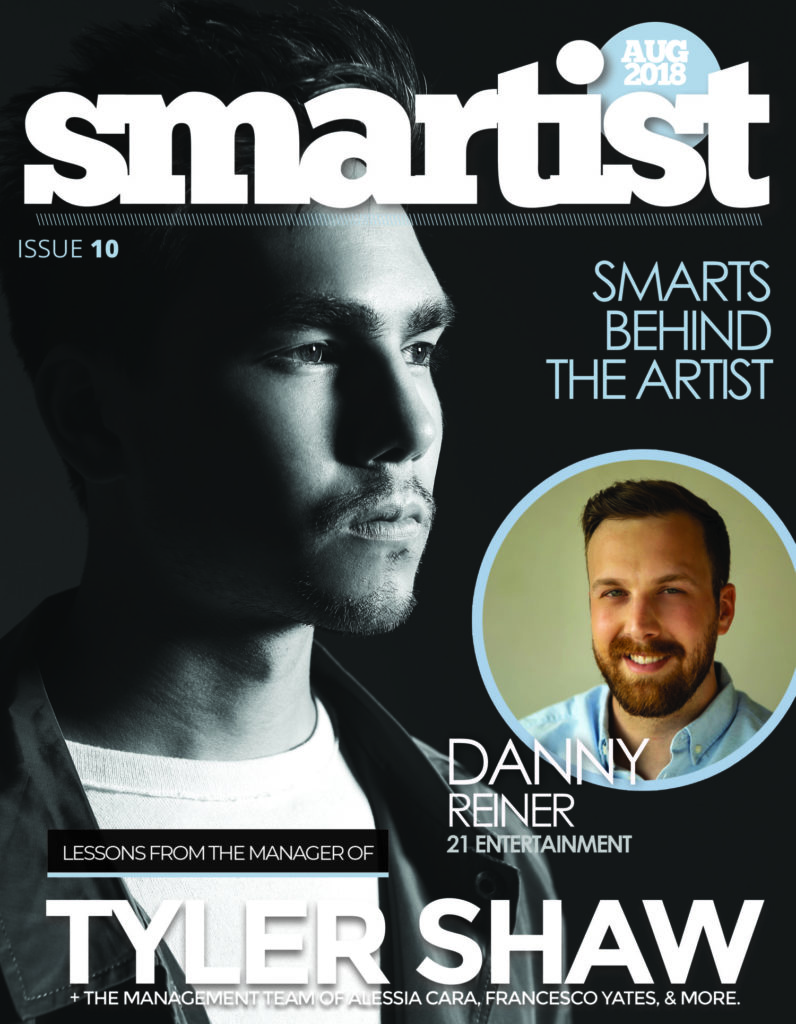
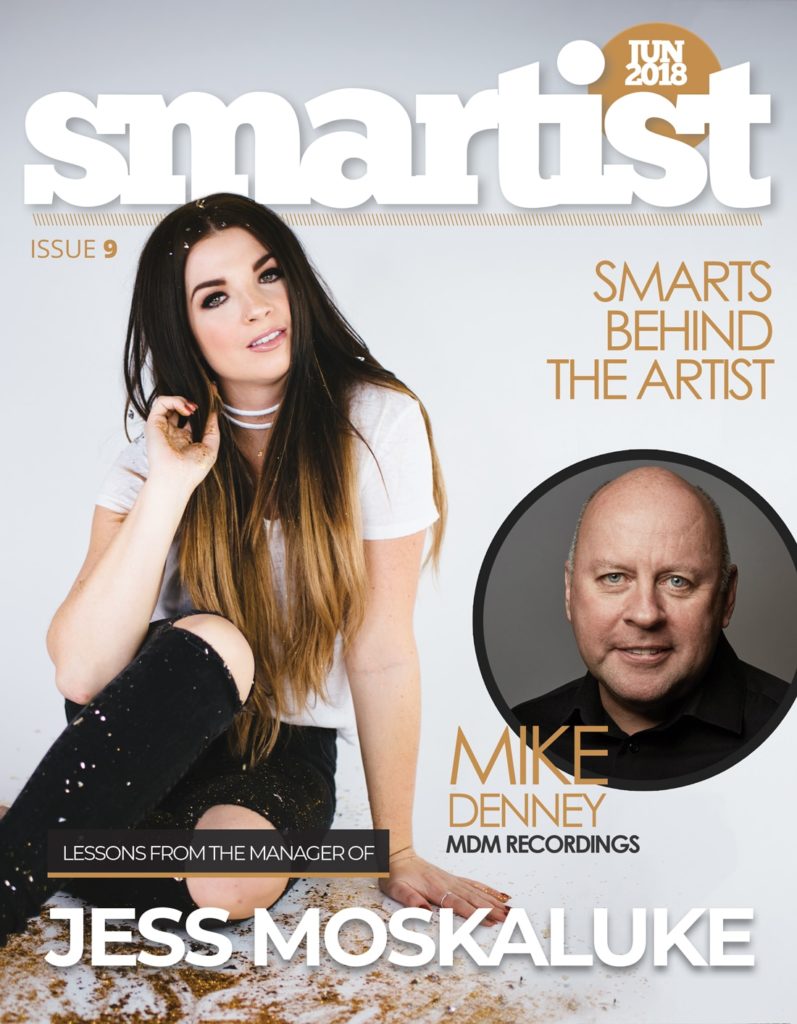
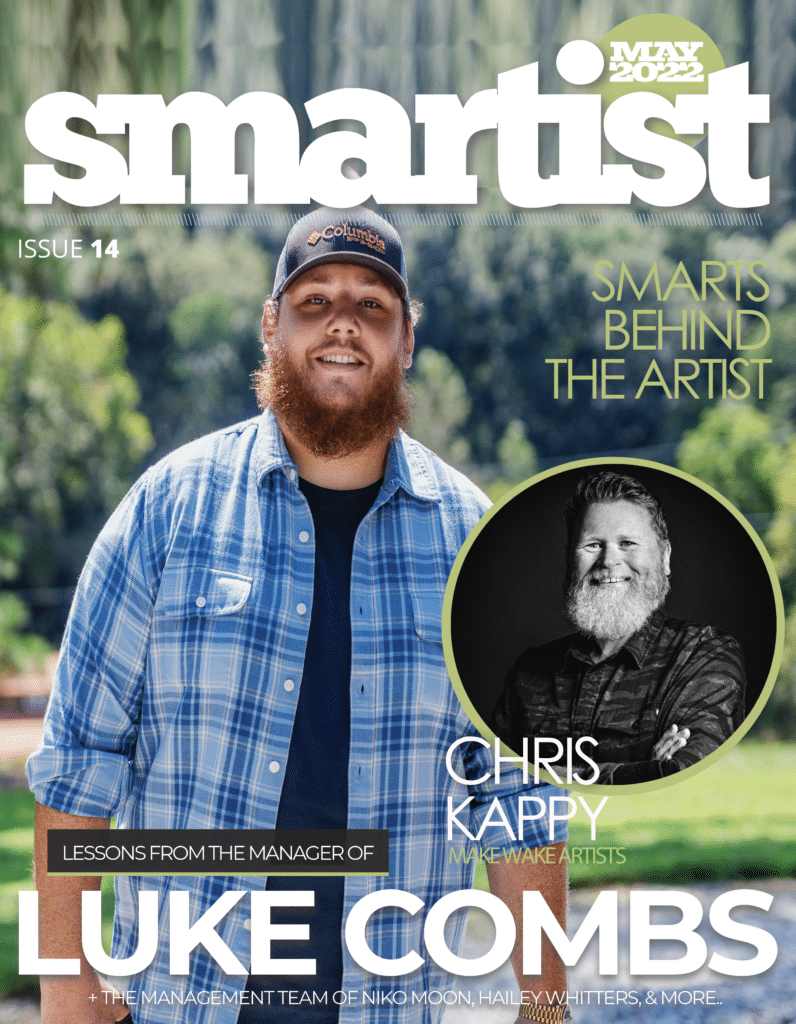
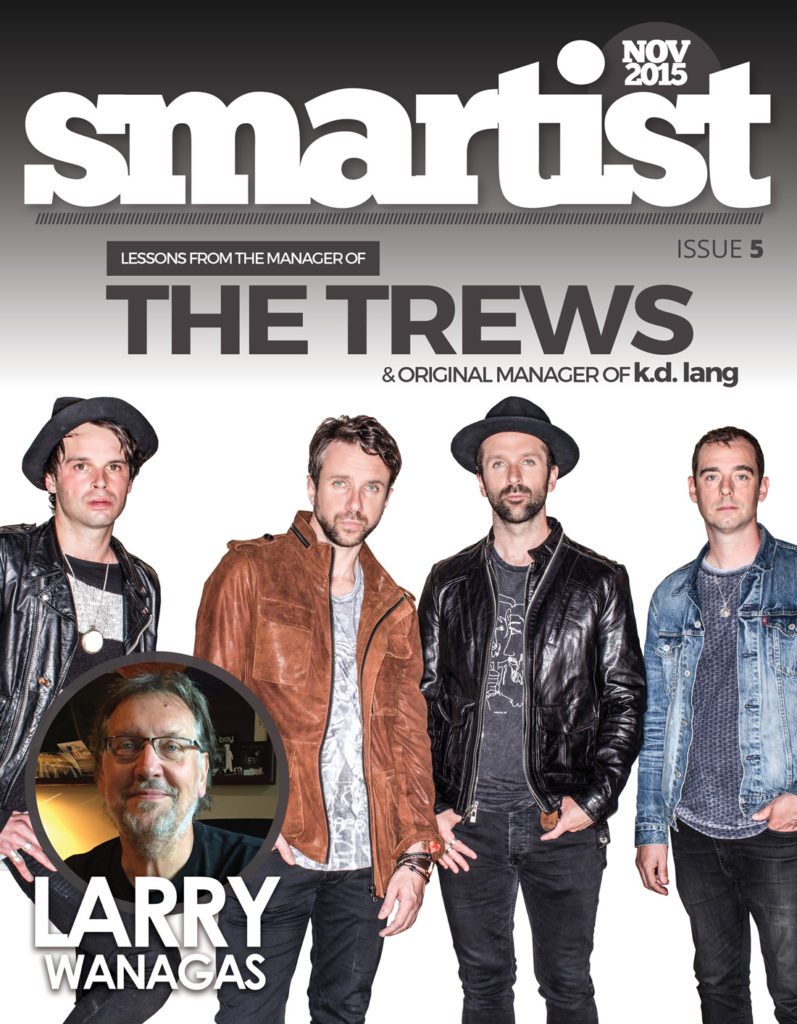
Responses